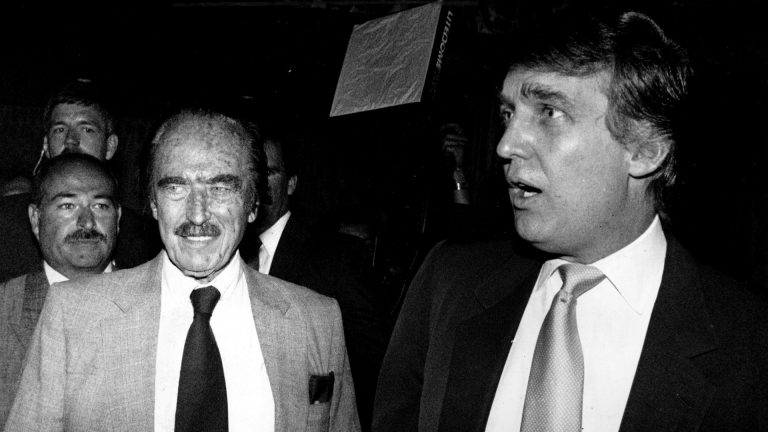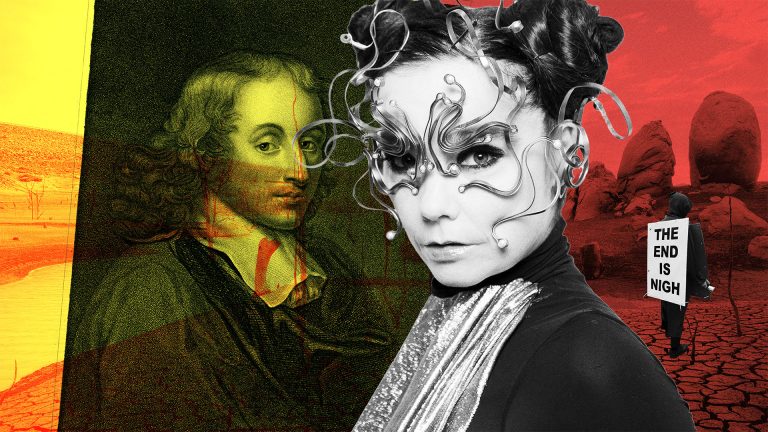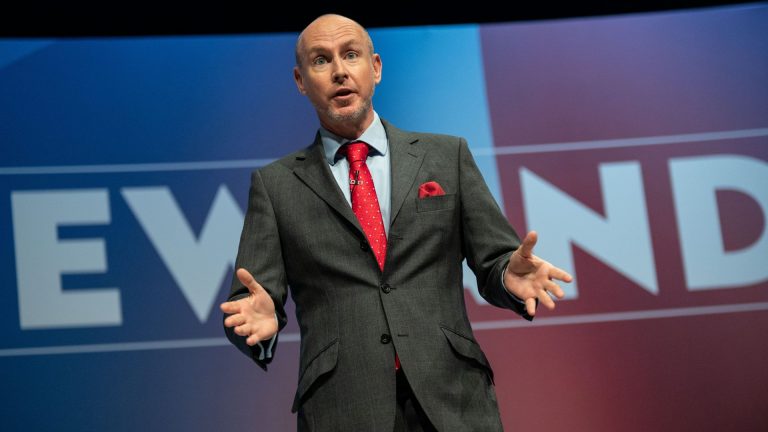
Former leader of the 1968 student protests. Daniel Cohn-Bendit explains what links those protests to Brexit and Trump, where the EU has failed and the simple way it can succeed
Daniel Cohn-Bendit is the European par excellence, the one whose details might have been given to Henry Kissinger when the former American Secretary of State famously asked: ‘Who do I call if I want to call Europe?’
Cohn-Bendit was born in France to German-Jewish parents. He is a former leader of the students’ protest movement of May 1968 in Paris, a former Green Party deputy to the social-democrat (SPD) mayor of Frankfurt and is both German and French – though will always support Les Bleus over the Germans on the football field.
He has been elected to the European Parliament for the Greens four times, standing alternately in Germany and France. An ex anti-totalitarian leftie who has converted to regulated market economics, he has always marked himself out with his independence of thought, towards the left in general and the Green Party in particular, most notably by supporting military intervention in Bosnia. He draws a line from May 1968 to Brexit, from the desire for freedom to the taste for authority, from European enthusiasm to a nationalist withdrawal: ‘A regression of democratic consciousness.’
MVR: In May 1968, hundreds of thousands of people were marching in Paris shouting ‘We are all German Jews’, in solidarity with you, for a society open to the world, freed from authority and conservatism. The slogans in fashion today are ‘Make America great again’ and ‘We want our country back’. What happened?
DCB: It happened that after the fall of the Berlin Wall and the collapse of the USSR, everybody reckoned that the West had got rid of the worst and that it had entered the era of triumphant capitalism. In fact, capitalism happened to be the driving force behind unbridled globalisation, and it got tangled up in its own contradictions. If it was progress overall, it did not meet expectations, accentuated fears and caused a lot of disorientation in many people. Some areas of society feel aggrieved and insecure and no longer understand the dynamics. Whether it is real or felt, it comes to the same thing: this feeling is a reality. From this point on, the traditional political forces have lost their grip and allowed the emergence of various forms of populism. Faced with this vast feeling of dispossession, populism plays on the magic of ‘you only have to…’. For example ‘you only have to’ return to national sovereignty, ‘you only have to’ make the rich pay … In this kind of situation, history shows, societies have regressive tendencies. This is where we are today.
MVR: Have we gone too far in claiming individual freedom, provoking a nostalgia for the forms of authority challenged in the 1960s? Does May 1968 bear some responsibility for the current return of nationalism, conservatism, religion and fear of the immigrant?
DCB: That’s a very funny question. It suggests that there are occult forces that continuously control evolutions or ruptures in societies. Those movements for the liberation of individuals took place throughout the world and were a response to the authoritarianism that existed in the 1950s. Communist authoritarianism gave rise to revolts in Poland and other countries. The authoritarianism of capitalism gave rise to the revolts that we saw in the West, from Paris to Berlin via the United States, all embracing opposition to the Vietnam War. From the moment these societies became emancipated, loads of theories and ideologies flourished and nobody was able to master them. To ask if it went too far is a false question: it went to where it went. Yes, experiments have gone too far and have run counter to the original intention, but when a dynamic is launched, no one controls it. The liberating dynamic of ’68 followed its hopes and contradictions and ended up banging its head against walls. That is true. Today there is a real reverse, a conservative backward tumble in response to the 1960s. In ten years you will ask me if those who support this movement have gone too far, and I will tell you – yes, but nobody controlled it. The evolution of societies is like the tide: it goes up, it goes down. We must fight to limit the damage, but ultimately no one can do anything about it.
MVR: Well, the tide is going down very far nowadays … to the point that freedom often seems no longer a fundamental value but an accessory. The autocratic Putin arouses admiration, François Fillon (on the right) does not see Russia as a threat, Ségolène Royal (on the left) praises democracy in Cuba, Theresa May’s government suggested counting foreigners in companies …
DCB: That is scary, yes. It was thought we had really arrived at something after the collapse of Nazi, fascist and communist totalitarianisms. Now, you can’t believe your ears and eyes: the very essence of liberty in a democracy is no longer a fundamental requirement. When democracies are weakened by economic conditions and international politics, people are turning to authoritarian solutions. In France, Putin has become a model for some; for others, Chavez and Castro are positive symbols of the struggle of the dictatorship against imperialism. In Britain, democracy is being severely challenged by nationalist forces and this so-called post-factual era. Democracy is a constant debate on the best solutions to organise political, economic, social and cultural life, and this debate only makes sense if those who confront each other for a democratic majority exchange arguments. But the arguments have disappeared. You are allowed to talk rubbish. Trump was elected on false arguments. The two great demands of Brexit – redirecting money from Europe to the NHS and closing the borders – were forgotten the next morning. That they were lies was not an issue. The moment societies organise themselves on words that no longer have any meaning, their democratic foundations are weakened. Democracy is paying the price of what it is and its most precious offering: Freedom.
MVR: How do you explain that it is Great Britain, the country of freedom and free trade par excellence, which gives the first signal of nationalist withdrawal?
DCB: No society is completely immune. Britain is Britain, yes, but with its glaring inequalities. Britain is Britain, but with diminished public services which assume less and less of their function. Each country has its democratic weaknesses. French society is fragile because its love of the revolutionary ideal is too strong. German society is fragile because its love of its secure, comfortable way of life is too strong. Although British society has a strong parliamentary tradition, it is also very nationalistic. It took me a long time to understand why Britain has such a difficult relationship with Europe. I believe it resides in the characteristics of British national pride. All people have their pride, but that of the British is peculiar. They are the only ones who can say to themselves: ‘Hitler’s armies were never been able to enter our country.’ They quickly dismiss the geographical advantage of being on an island. But in fact it is true: they never collaborated with the Nazis. They did not need Europe to assert themselves as a democracy. This fundamental mistrust of Europe is the hard core of British national pride.
MVR: Who is a scapegoat? Europe or Germany?
DCB: The two are confused because Germany is perceived and defined as the hegemonic country in Europe. The promoters of the Brexit played on it. To stir up the idea that the EU is ‘the Europe of Berlin’ is always effective, because it stirs up history and a deep sense of suspicion towards Germany. This is actually an argument that has been used by anti-Europeans of other countries, in Poland, Hungary, and also in France on the extreme right and extreme left. When Merkel and Schauble make errors, like over Greece, they feed an anti-German feeling, therefore an anti-European one. National pride feeds on more or less imaginary enemies. The nationalists of all the camps try in their respective countries to exploit that anti-Germanism which works at every blow.
MVR: Then Germany would be a country without national pride? The only truly great European nation in Europe?
DCB: German nationalism is the reverse of that of others. The notion among Germans now is as if they were genetically democratic, which is nevertheless a little exaggerated and post-factual. The view is: ‘We are the only society that works. If you want a Europe that works, an efficient economy today, you must take the policies and solutions we Germans have developed.’ To make others understand that Germans have become an unsurpassed model – that is their national pride. The drama of Europe is that it can be summarised in a simplistic way: the Germans are for Europe if it is German, the French for Europe if it is French, the British for Europe, if it will not contradict Britain in any way, and so on. What we have not succeeded in conveying is the common European interest is not the sum of the national interests and is not identical to the national interest. The United States constantly accommodates the contradiction between the local regional interest and the national interest. California is not like Texas, which is not like Florida. Germany is also in constant debate between the federal state and the Lander, whose requirements are different. Europe should work in the same way.
MVR: Brexit is the absolute symbol of European failure. The regulatory madness of the single market has exasperated people, the welfare state has not been able to adapt … What have we missed and why?
DCB: Since Thatcher, the Brits would say: ‘Keep hold of us, or suffer a misfortune.’ To understand Brexit, it must be remembered that since Thatcher and her ‘we want our money back’, all British governments have asserted themselves in suspicion towards Europe. Even Blair, who had a very European outlook, always maintained a defence of exceptions for Britain. The UK never wanted to be on an equal footing with others. As a result, Europe has built itself à la carte, with the concept of opt outs, and we have forgotten the fundamental objective of defining a common interest. The Brexiteers were able to surf over decades of denigration of Europe.
MVR: The fault of the Brits?
DCB: It is not their fault but of all the others who yielded to blackmail. British governments are not the only ones to position themselves by accusing Brussels. They have been doing it in a more radical way. It is always the same: every time a European decision is taken, you hear ‘Brussels has decided’. But who is Brussels? The Manneken Pis? The mayor of Brussels? No, Brussels is a commission that proposes, governments at the European Council, and a parliament that legislates. All governments cheat like this. It is easier to accuse a bigger entity. Similarly, during elections in France, in Britain, in Germany, all candidates will declare their country is large and strong. None will say, in an era of globalisation, it weighs nothing. If we want to keep an influence in the world, it is by means of Europe. This is a outlook that is almost never developed. That is what we have missed.
MVR: Is Europe messed up?
DCB: I am basically an optimist because I was born in 1945 and I was conceived just after the Anglo-American landing in Normandy. Imagine that the moment I arrived on earth, just after my primal cry, I would have told my parents, German Jews who had hidden in France: ‘In fifty years there will be no more border between France and Germany.’ My parents would have said: ‘We have a problem. Not only is this kid talking too soon, but he’s completely crazy.’ Well, against all odds, Europe has succeeded in that. Today it is in a difficult situation. But let’s take the example of France: the democratic nation state has taken three centuries to build itself. It is a slow process. The French Revolution gave us the universal declaration of human rights and the Republic – OK. But when did this Republic become democratic? In 1945, with the right for women to vote. Britain was earlier on this point but it retained other privileges. Germany too, but it then sank into Nazism. What we now call democracies are the result of contradictory developments in our societies. If one analyses the length of time it takes to build a democracy at a national level, half a century to build the European Union is nothing. But this is difficult to explain and accept politically, because the scope of history is not the same as it is for politics, which is structured around the immediate.
MVR: The problem is that Brexit will happen in the short term: we build slowly, we destroy quickly.
DCB: That’s the big debate. Some believe that Brexit accelerates a general disintegration. I am not so sure. The negotiations have barely begun but it is already clear that the consequences will be hard and dramatic for the British. This creates anxiety. Everyone is looking for arguments to reassure themselves, but in fact Brexit has provoked awareness. In Austria, there was a large majority to leave Europe, which turned completely after Brexit. Even in the presidential campaign, the right-wing candidate ended up no longer pledging that he wanted to leave the euro and the EU, because 60% of the Austrians wanted to stay. This explains, in part, the victory of the ecologist Van der Bellen. The other small symbolic event is the by-election in Britain where pro-Brexit Zac Goldsmith was defeated in his affluent constituency of Richmond Park. He was beaten by the Liberal Democrat candidate, supported by the Greens: the one who had the clearest position against Brexit. In the future, the only way for Labour to win in the UK would be to really position itself for Europe and to seek a coalition with the Lib Dems. But at present Labour is so contradictory and so ambiguous about Brexit that it is incapable of creating a constructive dynamic. Corbynism is the old school socialism that plays the wrong card every time.
MVR: In Britain as in France, it becomes more and more common to admire authoritarian figures and see dictators as heroes. Putin enjoys an extraordinary aura. Are we seeing the return of personality cults? Are comparisons with the 1930s really relevant?
DCB: The 1930s were something else. What is happening today is a regression of democratic consciousness, another form of populism and totalitarian aspiration I would not compare with fascism. Our societies have moved forward. But democracy is a complicated and slow process. In these moments of uncertainty, people are tempted to admire autocrats like Putin who show their muscles. Why did we demonstrate against the war of Bush and Blair in Iraq and not against Putin and Assad in Syria? Because those who demonstrate, essentially the left, are always structured on anti-Americanism. From the moment the Americans are no longer concerned, it does not affect anyone. The left that demonstrates does not feel emotionally targeted when the imperialism concerned is that of the Russians, because their formatted enemy is American anti-imperialism and the American way of life. It is that simple. Freedom matters little to them – at least when it comes to the freedom of others.
MVR: Bizarrely, this taste for authoritarianism goes with freedom to express yourself without any ethical limit on social networks, and, in this post-factual society, an acceptance of the most enormous lies from the new leaders.
DCB : Yes, because those who say sensible things are not able to convince others. You cannot prevent it. In a normally constituted society, when politicians say bullshit, few people would listen to them. But in a world where a large part of the population is disconcerted and helpless, then bullshit will triumph. Post-factual discourse has taken hold because it attacks head-on the discourse of an elite which cannot justify the contradictions of the system or even explain them. Social networks allow the possibility of investing in a public space without moral regulation. You can let yourself go. The immorality that each has in ourselves, you can spit it out every day without censorship. At the same time, the moral responsibility for the truth that must define the press and the media disappears on social networks. We have not yet found the filter to rationalise the irrational you find here.
MVR: Obama worried that Trump, whose advisers cannot even control his compulsive tweets, would soon have control of the nuclear button…
DCB: The election of Trump is the product of all this. America is deeply divided. Hillary Clinton got more than two and a half million votes more than Trump, and lost because of an electoral system that nobody wants to change because everyone has benefitted from it at certain periods in history. But Trump is carried by a new groundswell. White America sees its power diminishing and the white middle classes, the losers of globalisation and of an unbridled accumulation of capital, are turning to the most basic hatred. We are no longer in the rational. Trump promised to ‘drain the swamp’ in Washington, and he is composing the most ‘swampy’ government history has ever known. Bullshit doesn’t scare anymore because the sensible doesn’t inspire dreams anymore. So here we are. Political irrationality works, post-factual works, social networks work because sense has not proved to be efficient and because capitalism is what it is, just as anti-communism worked because communism was what it was. It is a response to inadequacy. And that response – the irrational – is uncontrollable.
MVR: With Trump, an ally of Putin, we are facing, for the first time, the scenario that the greatest global power is not representative of Western values. What can Europe do about this?
DCB: First, we will quickly assess the stability of American democratic institutions. One can make a bet that within two years, Trump will no longer be president, there will be an impeachment. It’s too crazy. As for the change of global axis, this is precisely the reason why Europeans must wake up as soon as possible. Faced with disintegration and American disengagement, Europeans need Europe more than ever and we must speed up reflection.
MVR: But Europe has not managed to convince. What can you still inspire dreams with?
DCB: With Europe! Stop all this beating around the bush! It’s simple, very simple: we will only make our way with Europe. If we did not succeed, it is because we did wrong. Everything Eurosceptics say about Europe that does not work, I reply – you are right, it is true, it is even worse. But the reality is that without Europe we will not be able to get on. This is the point that we must continue to hammer. In France, Emmanuel Macron is the only presidential candidate to say it together with the ecologist Yannick Jadot. It is unbelievable that almost all politicians are afraid of this idea, though it is stating the obvious. Europe was a strategic goal to put an end to wars and nationalism. In that we have succeeded, even if problems of nationalism do remain. In an era of globalisation, Europe is our only possible shield. Those who claim that we have only to stop globalisation tell tall stories. It is here, we must be strong and not pretend that it does not exist.
MVR: Europe, Europe … De Gaulle would repeat his memorable phrase that you jump around like a kid goat! How do you make it a political reality?
DCB: Politicians never have the honesty to explain that Europe must mean shared sovereignty and that this shared sovereignty is an autonomous political space. Instead, governments cling to representing their national interests and the European Council is only a compromise based on national positions. It’s sterile. To organise European sovereignty in our globalised world is the fundamental struggle to be master of our lives. For this to happen, those who opt for this European national interest must gain political weight in the democratic debate. So, I make the announcement here, I will be a candidate in the European elections of 2019, provided that we manage to create a transnational party, a pro-European eco-social-liberal coalition with a list of deputies from all countries. Only in this way can we truly advance.
MVR: With British candidates?
DCB : Yes of course. Let them denounce themselves. Brexit is not over. The British still have time to realise that Europe is their only future. But it is not arguments, even the best ones, that are capable of changing the course of things. Mobilisation is needed. One must first convince all the British who have not voted, and especially the young people, that they have made a mistake. Obviously, it is not a matter of challenging the outcome of the referendum, but of bringing the people and leaders to admit their mistake and acknowledge the harm they have done to themselves. After two years of negotiations that are likely to be insoluble, Theresa May can go to the House of Commons and say ‘we cannot do it, we have to go back’. That is why the Europeans must be very clear. The single market goes with the freedom of movement of people. ‘Brexit means Brexit’ as May says – ok, but Europe means Europe too. If you don’t mean Brexit, you mean Europe. You can not cheat with that. And if we do not stop Brexit, in 10 or 20 years time the British will apply for membership of the EU. I make a bet: even the British will eventually dream of Europe.Read this article in French: Monsieur L’Europe s’inquiète mais le rêve doit persister









